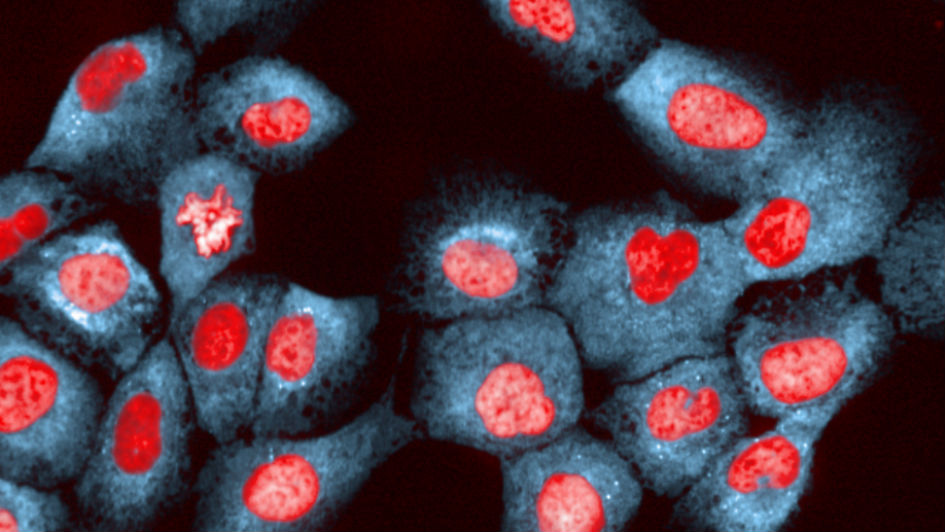A gene involved in sperm and egg development has a role in breast cancer

A gene normally used in the development of sperm and egg cells has been shown to be active in some types of breast cancer, suggesting new treatments might be available.
A study led by Professor Andrew Tutt with colleagues at the ICR and King’s College London found that a gene normally involved in sperm and egg development may have a role in the development of some breast cancers.
The gene HORMAD1 is normally active in the testis and ovaries where its job is to turn off accurate DNA repair during sperm and egg development as a way of creating genetic diversity between parents and offspring.
In this study, our researchers found evidence of HORMAD1 activity in the patterns of mutations and gene messages in breast cancers – the first time it had been shown to be active in cells outside of the testis and ovaries. Cells with active copies of the gene seemed to use a messier and less effective form of DNA repair, leading to some genes being duplicated or deleted. The study, which was published in Cancer Discovery, suggests that when the gene is activated out of context and switches off accurate DNA repair in normal cells, it can cause genetic instability that could potentially turn cells cancerous.
The researchers went on to look specifically at triple-negative breast cancer, a hard-to-treat cancer with low survival rates. They found HORMAD1 could drive genetic instability in cancer cells from this tumour type. Interestingly, if the cells from these cancers had HORMAD1 activity, the researchers found that they were vulnerable to treatment with platinum-based chemotherapies and PARP inhibitors.
This suggests that looking for HORMAD1 could be used in the future as a way to identify cancers that might be susceptible to these treatment types. If future clinical trials can confirm the finding, it could open up new options for women with triple-negative breast cancer, which is particularly difficult to treat.
The research was funded by Breast Cancer Now.
Reference:
Watkins et al. (2015) Genomic Complexity Profiling Reveals That HORMAD1 Overexpression Contributes to Homologous Recombination Deficiency in Triple-Negative Breast Cancers. Cancer Discov. 5(5) DOI: 10.1158/2159-8290.CD-14-1092
More highlights from 2015